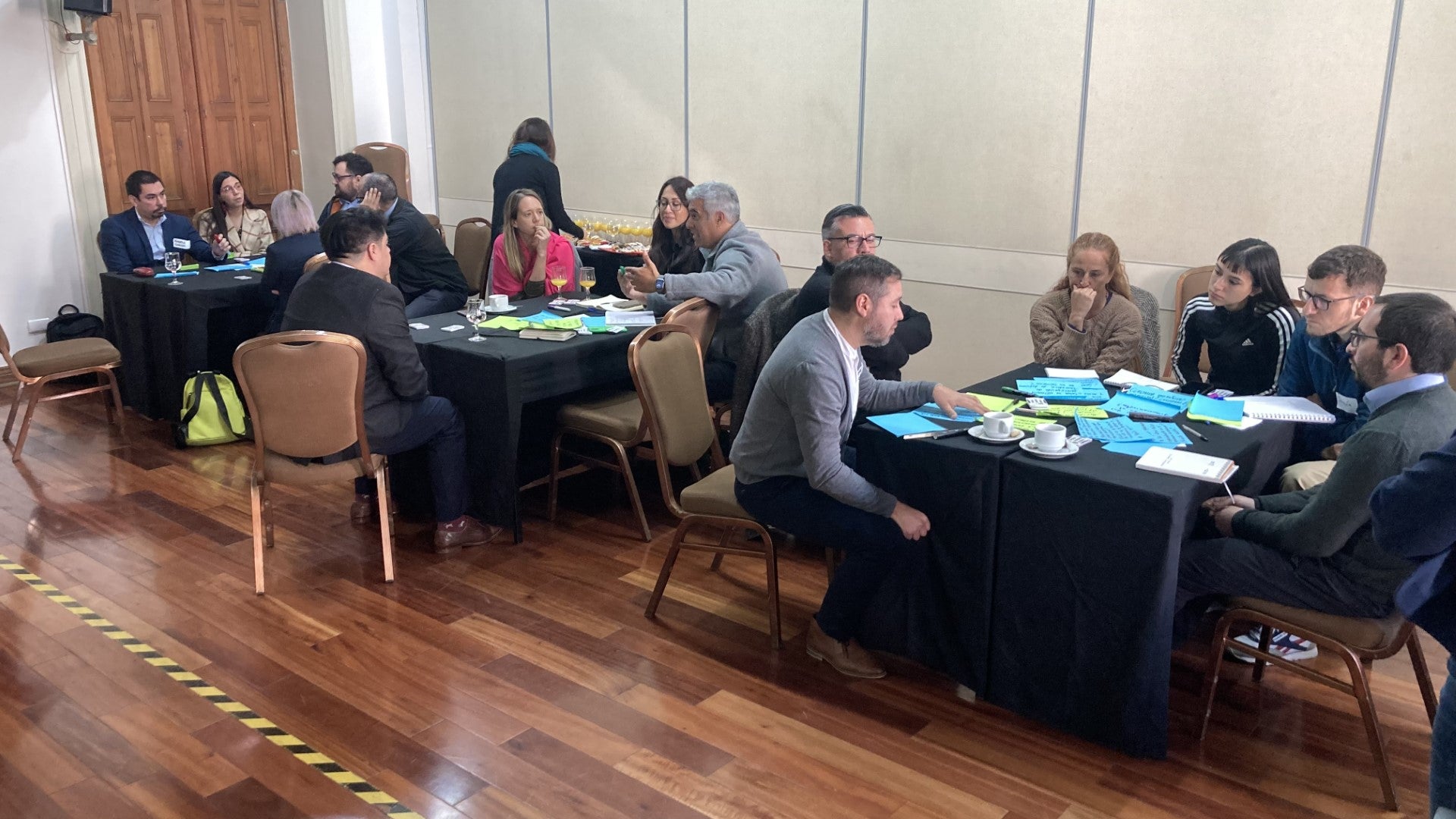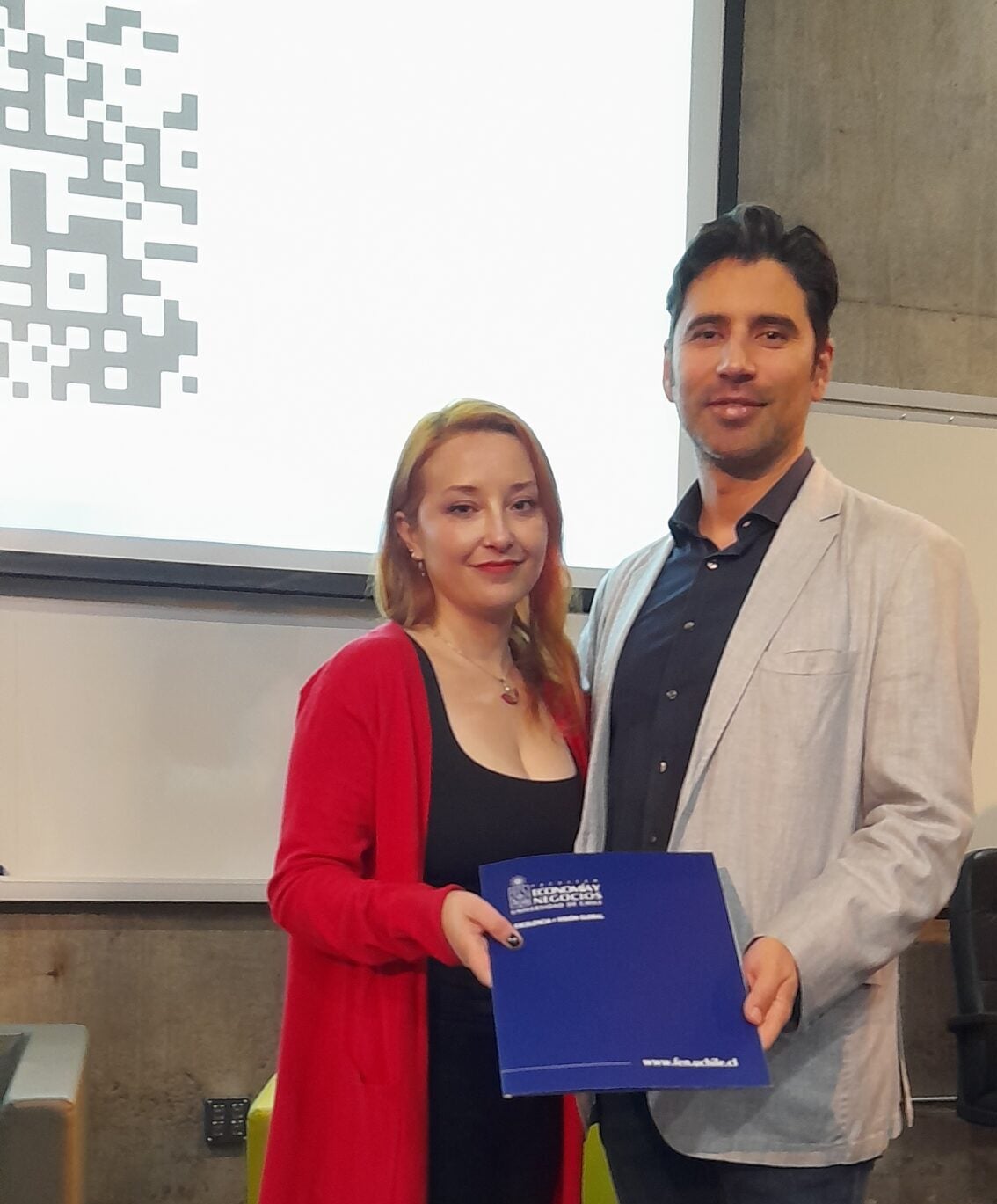Empowering Chile’s Climate Action: A Citizen’s Guide to Article 6
This blog was authored by Francisco Pinto and Rodrigo Bórquez, economists of the Climate Action Teams (CAT) initiative, and by Environmental Defense Fund economist Luis Fernández Intriago.
Source: Climate Action Teams
Reducing emissions is imperative to address climate change. The mechanisms established in Article 6 of the Paris Agreement can serve as vital tools in our quest to stop the impacts of climate change and safeguard the future of our planet—but navigating its complexities can be tricky.
To tackle this challenge, between June and August 2023, the Climate Action Teams (CAT-Chile) initiative, co-founded by EDF, and the Consensus Building Institute (CBI) conducted a dialogue process in Chile. We aimed to convene key players in a discussion to better understand Article 6’s potential to boost Chile’s climate ambition.
This fruitful dialogue, called “Climate Dialogue: Strengthening Chile’s Ambition through Article 6 of the Paris Agreement“, explored three specific areas:
- The feasibility of implementing Article 6 in Chile,
- The application of safeguards, and
- The short-term actions and tasks to progress in this field.
The dialogue’s outcomes were delivered to Chile’s Ministry of the Environment to consider as they prepared to host their own public-private sector dialogue on ideas around the development of a Chilean Article 6 policy.
Our process of dialogue:
Our dialogue process ran in two simultaneous series—one with a high-level, multi-actor group of members from the public sector, private sector, academia, and NGOs; and a second group with members of Indigenous Peoples. We discussed a common vision on how the instruments outlined in Article 6 of the Paris Agreement (with an emphasis on Article 6.2) could contribute to increasing Chile’s climate ambition, as well as the specific contribution of Climate Action Teams.
Between June and August 2023, five meetings were held with the national multi-actor group (three in-person and two virtual), averaging 20 people per session, and three meetings with members of Indigenous communities (all virtual), averaging seven people.
The meetings addressed the following questions:
- Is the use of Article 6 feasible in Chile, specifically the cooperation mechanism outlined in Article 6.2? What are the challenges that need to be addressed in this context?
- Should Chile decide to implement cooperative agreements under Article 6, what safeguards or conditionalities are necessary to ensure appropriate implementation?
- How can Climate Action Teams Chile contribute to the design and implementation of these mechanisms?
During the sessions, we featured presentations from various stakeholders, including representatives from the Ministry of the Environment of Chile, the Swiss Foundation Klik, the Municipality of Renca, and the CAT-Chile team.
Building Trust and Relationship Through Dialogue
Following presentations, the facilitating team used multiple tools to build trust among participants and foster a spirit of collaboration. At the beginning of each in-person meeting, time was allocated for informal conversation to get to know each other better. In contrast, in virtual meetings, chat and “breakout rooms” were used to replicate this dynamic of initial informal conversation.
Another tool used was real-time surveys. For in-person meetings, the team used keyboards that allowed participants to answer questions by pressing a button and immediately viewing the results. In virtual meetings, Zoom’s survey feature was used.
Surveys allowed the team to ask questions about participants’ perceptions and moods, providing anonymity and encouraging honesty. Additionally, the facilitation team would recap the progress and summarize the previous session at the beginning of each meeting. The entire process was dynamic and fruitful, enabling the actors to better understand the scope of Article 6 and its potential to accelerate mitigation in Chile. Each participant was also asked to identify points that needed attention in its implementation, from their particular sectoral perspective.
Results of the process: A citizen’s guide for Article 6
The CAT initiative delivered the result of its dialogue process at a public seminar , organized jointly with the Corporate Leaders Group for Climate Change (CLG-Chile) at the Faculty of Economics and Business of the University of Chile last October. The shared statement was presented to the head of the Climate Change Division of the Ministry of the Environment, Jenny Mager.
The results of the dialogue concluded that:
The application of Article 6 in Chile is feasible, but challenging. To achieve it, Chile must build capacity.
- Feasibility with Challenges. It is feasible to use Article 6 in Chile, although it is recognized the difficulty of meeting, and even more, exceeding the greenhouse gas (GHG) emissions target for the year 2030 established in Chile’s current Nationally Determined Contribution (NDC), making possible the materialization of bilateral or multilateral agreements under the Article 6.2 cooperation mechanism. To achieve this, it is essential to have early definitions and a significant availability of human and financial resources, as well as an institutional infrastructure that facilitates the implementation of both public and private initiatives that promote GHG mitigation beyond national commitments.
- Capacity Building. The State must strengthen its technical and operational capacities, while broadening its scope at the territorial level, to effectively implement policies and cooperation initiatives under Article 6. It is essential that the agreements generated (whether bilateral or multilateral, under Article 6.2, or under any other Article 6 mechanism) contain instruments to finance and promote the strengthening of the capacities of local governments and actors, promoting the development of enabling infrastructure, technology transfer and facilitating technical exchange.
Social and environmental safeguards must be robust in any application of Article 6 in Chile.
- Integral Protection. The use of Article 6 should be based on the normative frameworks and international agreements signed by Chile that safeguard essential social and environmental balances. Special attention should be paid to their full compliance in the territories. These mechanisms should consider: (i) unwavering respect for Human and Indigenous Peoples’ Rights, in line with international standards (e.g., the UN Declaration for the Rights of Indigenous Peoples); (ii) the right to free, prior and informed consent; (iii) safeguards to protect natural, cultural, tangible and intangible heritage and prevent further damage; (iv) consultation with the territories and local communities and institutions representing indigenous peoples before approving GHG reduction and/or removal initiatives/projects, promoting the inclusion of their knowledge and experience, the incorporation of ancestral knowledge and indigenous science, as well as mechanisms that allow for the equitable distribution of benefits in he intervened territory, and; (v) that the State of Chile fulfills its role as guarantor of these rights.
- Participation and Oversight. The procedures for the application of Article 6 must include robust citizen participation processes, based on international best practices. Participation and transparency are fundamental safeguards to validate these mechanisms. Effective oversight of all safeguards is also essential. It is recommended that agreements under Article 6, especially Article 6.2, include funding mechanisms for monitoring and oversight, following international best practices, such as ongoing third-party audits of their implementation/operation to ensure the rigor of the process.
Chile must move forward to align on Article 6 with clarity, experimentation, and transparency,
- Strategic Definition. It is of utmost importance that the State defines and/or establishes general guidelines, regulatory frameworks, procedures, sectoral and/or territorial definitions, or a positive/negative list of initiatives/projects to clarify where and how to direct the incentives and actions of the various stakeholders. In addition, progress should be made in defining mechanisms and procedures for managing the corresponding adjustments and between project and/or initiative proponents and the respective government authority. These elements will provide clear signals to the different sectors, including both national and international collaborators.
- Learning and Experimentation. Recognizing that the international community is in a learning process on how to enable and use the different cooperation mechanisms of Article 6, particularly Article 6.2, the group urges progress using existing tools, technological solutions and standards, along with experimental piloting processes, first, in territories where there are better conditions for implementation and always ensuring the application of best practices and their respective safeguards.
- Transparency and Collaboration. It is essential to clarify and communicate in advance the functioning of the mechanisms of Article 6 and its safeguards in order to achieve an optimal and adequate distribution of benefits in the territories. We must also highlight the mechanisms related to fostering the involvement, collaboration and empowerment of local communities and indigenous peoples, through their own organizations and representative institutions related to these issues.
Climate Action Teams (CAT) can play an important role in promotion, technical support, and multisector collaboration.
- Active Promotion. Climate Action Teams can play an active role in promoting the use of Article 6.2 in Chile, through proposals for aggregated and simplified Measurement/Monitoring, Reporting and Verification (MRV) methodologies, as well as its ability to bring together diverse stakeholders in a multi-sectoral and multi-level cooperative pilot approach.
- Technical Support. Climate Action Teams could play an important technical role in fostering the incorporation of high social and environmental standards in GHG mitigation initiatives and cooperative agreements, as well as supporting and promoting capacity building, technology transfer and experience sharing among relevant actors at the local and global levels, including the public, private, academic, indigenous peoples and civil society sectors in general.
- Multisectoral Collaboration. The stakeholder group convened by the Climate Action Teams initiative recognizes that the implementation of Article 6 is a complex challenge that depends on collaboration among diverse sectors. It therefore calls on the public sector to communicate its progress in this area in a broad, timely and transparent manner, while expressing its willingness to support the implementation of Article 6 in a variety of capacities and roles.
Current Chilean Situation of Art. 6 and CAT-Chile Next Steps
At the Ministry of Environment’s Public-Private Roundtable on Article 6 that followed our dialogue, they worked on the elaboration of the Article 6 policy, considering the contributions that resulted from the CAT dialogue process. Although there is no date for the policy’s launch, we expect to learn more this year. We hope to see greater certainty on how to implement the different instruments and mechanisms that operate under Article 6—especially for Article 6.2, under which a CAT Agreement would operate.
In addition, CAT Chile will continue to develop the understanding of the mechanism and its advantages both in Chile and in other potential host or partner countries. In the coming months CAT Chile is coordinating a series of bilateral dialogues with peers in New Zealand, focusing on three specific audiences: (i) modelers, to exchange experiences in the use of projection models to evaluate potential additional GHG reduction scenarios; (ii) stakeholders, including representatives of the public and private sectors, NGOs and academia, to address potential actions and policies to accelerate decarbonization and its feasibility, the viability and potential of CAT to contribute to it and the challenges it would face; and (iii) Indigenous Peoples, to discuss their perspective on Article 6, as well as the main social and environmental safeguards to be considered in a potential agreement.














